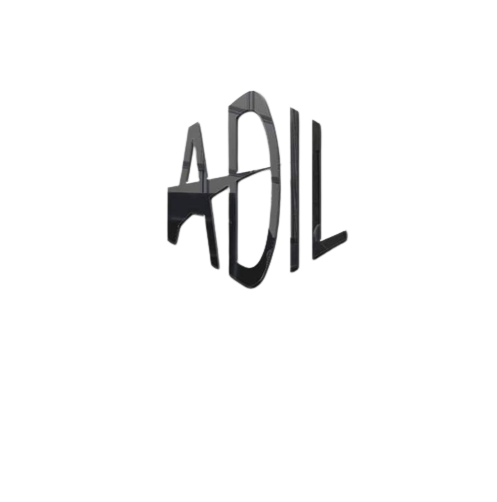A perfect Diet plays an important role in bodybuilding.
Foods to eat include:
Eating the correct foods in the appropriate quantity provides your muscles with the nutrients they have to recover from workouts and grow stronger than stronger. Conversely, taking the wrong foods or not taking enough of the right ones will leave you with subpar results.
Here are foods you must target and foods to limit or avoid:
Foods to target:
The foods you eat don’t get to differentiate between the bulking and cutting phase — usually, it’s the amounts that do.
- Meats: Fish, poultry: ground beef, sirloin steak, chicken breast, venison, tilapia, salmon, and cod.
- Dairy: Cottage cheese, Yogurt, cheese, and low-fat milk.
- Grains: Cereal, bread, oatmeal, crackers, quinoa, rice, and popcorn.
- Fruits: Apples, ranges, grapes, bananas, pears, watermelons, peaches, and berries.
- Starchy vegetables: Corn, Potatoes, green lima beans, cassava, and green peas.
- Vegetables: Broccoli, spinach, leafy salad greens, peppers, tomatoes, green beans, cucumber, zucchini, asparagus, and mushrooms.
- Seeds and nuts: Almonds, chia seeds, walnuts, sunflower seeds, and flax seeds.
- Beans and legumes: Chickpeas, kidney beans, lentils, black beans, and pinto beans.
- Oils: Olive oil, avocado oil, and flaxseed oil.
Foods to Limit:
While you must include a range of foods in your diet, there are some you should limit.
These include:
- Alcohol: Alcohol will negatively affect your ability to lose fat and make muscle.
- Added sugars: These provide many calories but few nutrients. Foods high in excess sugars include candy, cookies, ice cream, doughnuts, cake, and sugar-sweetened beverages, equivalent to soda and sports drinks.
- Deep-fried foods: These may promote inflammation and — when consumed in much — disease. Examples include fried fish, onion rings, french fries, chicken strips, and cheese curds.
In addition to limiting these, you will also need to avoid certain foods before going to the gym that can slow digestion and cause indigestion throughout your workout.
These include:
- High-fat foods: Buttery foods, high-fat meats, and heavy sauces or creams.
- High-fiber foods: Beans and cruciferous vegetables like cauliflower or broccoli.
- Carbonated beverages: Drinking water or diet soda.
- Bodybuilding Supplements: Many bodybuilders take dietary supplements, some of that is useful whereas others aren't.
The best bodybuilding supplements include:
- Whey protein: consuming whey protein powder is a simple and convenient source to increase your protein intake.
- Creatine: creatine provides your muscles with the energy required to perform an extra rep or two. Whereas there are several brands of creatine, look for creatine monohydrate as it’s the foremost effective
- Caffeine: caffeine decreases fatigue and permits you to work harder. It’s found in pre-workout supplements, coffee, or tea.
- Multivitamin: A multivitamin and mineral supplement is also useful if you’re limiting.
Your calorie comfort to scale back body fat throughout your cutting phase.
One-Week Sample Menu:
The diets of bodybuilders are usually represented as restrictive, repetitive, and boring. Traditional bodybuilding diets typically contain restricted food alternatives and a tiny variety among food groups, which might result in an inadequate intake of essential minerals and vitamins. For this reason, it’s necessary to include variety in your diet to confirm your nutritionary desires are being met — particularly throughout a cutting phase once you eat limited calories.
Each meal and snack ought to contain 20–30 grams of protein to optimally support muscle building.
When you’re during a bulking phase, your food intake should be higher than when you’re in a cutting phase. You can get pleasure from similar foods in the cutting phase that you} would once bulking — just in smaller portions.
There is a sample one-week bodybuilding diet menu:
Monday
- Breakfast: Mushrooms with scrambled eggs and oatmeal.
- Snack: Blueberries with Low-fat cottage cheese.
- Lunch: White rice, venison burger, and broccoli.
- Snack: A banana and protein shake.
- Dinner: Salmon, quinoa, and asparagus.
Tuesday
- Breakfast: Protein pancakes with lightweight syrup, raspberries, and peanut butter.
- Snack: An apple and hard-boiled eggs.
- Lunch: Sweet potato, sirloin steak, and spinach salad with vinaigrette.
- Snack: Walnuts and protein shake.
- Dinner: Ground turkey and marinara sauce over pasta.
Wednesday
- Breakfast: Chicken sausage with egg and roast potatoes.
- Snack: Almonds and Greek yogurt.
- Lunch: Turkey breast, basmati rice, and mushrooms.
- Snack: Grapes and protein shake.
- Dinner: Brown rice, mackerel, and salad leaves with vinaigrette.
Thursday
- Breakfast: egg, cheese, Ground turkey, and condiment during a whole-grain tortilla.
- Snack: Granola with yogurt.
- Lunch: Baked potato, Chicken breast, sour cream, and broccoli.
- Snack: protein shake with mixed berries.
- Dinner: Stir-fry with chicken, egg, broccoli, brown rice, peas, and carrots.
Friday
- Breakfast: Blueberries, strawberries, and vanilla Greek yogurt on overnight oats.
- Snack: Jerky with mixed nuts.
- Lunch: Tilapia fillets with lime juice and, seasonal veggies, black and pinto beans.
- Snack: Protein shake and watermelon.
- Dinner: Ground beef with corn, brown rice, green beans, and green peas.
Saturday
- Breakfast: Ground turkey and egg with corn, bell peppers, cheese, and salsa.
- Snack: Can of tuna with crackers.
- Lunch: Tilapia fillet, potato wedges, and bell peppers.
- Snack: Protein shake and pear.
- Dinner: Diced beef with rice, black beans, bell peppers, cheese, and pico DE Gallo.
Sunday
- Breakfast: Eggs sunny-side up with avocado toast.
- Snack: Almond butter and protein balls.
- Lunch: Roast garlic potatoes and green beans.
- Snack: Strawberries and protein shake.
- Dinner: Marinara sauce, turkey meatballs, and parmesan cheese over pasta.
SUMMARY:
Include a range of nutrient-rich foods across and within all the food groups in your diet. Avoid alcohol, avoid and limit foods with added sugars, and fried foods. in addition to your diet, whey protein, creatine, and caffeine will be helpful supplements. Vary the categories of foods in your diet and take 20–30 grams of protein with every meal and snack.






0 Comments